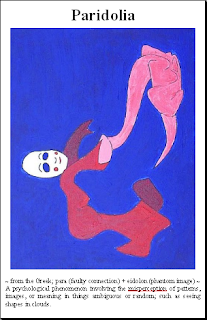£2.90
(+£3.62 p&p)
The
second volume of Break the Chain is a
battle cry from the Jacksonville punk scene. Sequels are always tricky, and so
I was eager to see if zine maker Matt Sessions could pull it off.
The first
interview is with Dawn Ray’d, a black metal band from the north of England (my
neck of the woods, how exciting!). Reading through this interview, I was a
little disappointed with myself; my surprise at the band’s articulation and love
of poetry (their band name comes from a poem by Voltairine de Cleyre) spoke
volumes about my own preconceptions of heavy metal bands. Much of their
interview was an exploration of the power and beauty of words, and yet it ended
with a reminder of the anarchy at their core - “Fuck the pigs, smash the Nazis”.
This
volume also offered fantastic artwork from Matt Jaffe. His images have been
created with thousands of dots, each one carefully placed, each one a crucial
part of a bigger picture. Jaffe’s artwork is sharply evocative, but more
importantly it teases one’s curiosity – each image bears a strange caption
(“alienergy”, “sickened”, “radiate”), none of which make sense straight away.
It’s
clear that Sessions has held onto the same punk ethos that birthed the fist
volume of Break the Chain, and he’s
built on this significantly in the second volume. The pages are crammed full of
content, each item fitting well within the theme of angry protest whilst
offering their own distinct point of view.
 Sadly, some
items fall a little short. Ed Dantès’ essay “In Prisons We Trust (part one)” is
full of angry commentary, but unfortunately offers very little depth or
intelligent examination of the points he is criticising. I was really rooting
for Dantès – his argument started off well, gained momentum, but the deathblow
never came (perhaps it arrives in part two).
Sadly, some
items fall a little short. Ed Dantès’ essay “In Prisons We Trust (part one)” is
full of angry commentary, but unfortunately offers very little depth or
intelligent examination of the points he is criticising. I was really rooting
for Dantès – his argument started off well, gained momentum, but the deathblow
never came (perhaps it arrives in part two).
This
volume is a gripping read, and I think this has a lot to do with Sessions’
obvious love for the music scene in his area. It’s clear that he doesn’t make Break the Chain for profit or notoriety
(you won’t find his name anywhere in these pages), but because he loves the
Jacksonville scene.
On the
whole, the second volume of Break the
Chain is a triumph. It it builds on the themes of protest and angst
introduced by its predecessor and the result is a zine which is polished and
cohesive – clearly, Sessions is finding his groove.
Volume
two of Break the Chain can be bought
here
Review by J.L. Corbett

















